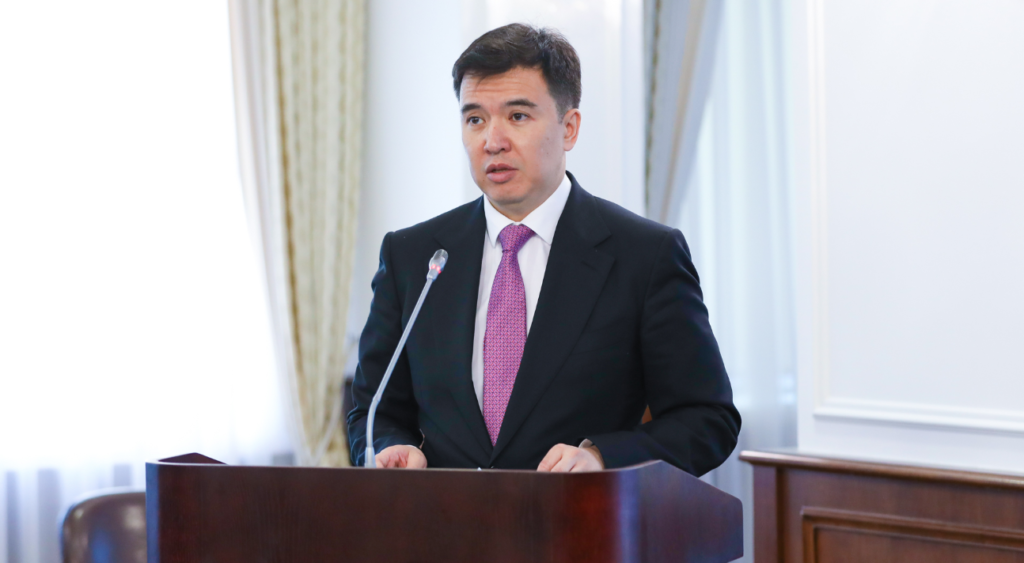NUR-SULTAN – Kazakh GDP growth, calculated at 4 percent from January-May, is maintaining positive dynamics, noted Minister of National Economy Ruslan Dalenov.
“The dynamics in investments outpace GDP growth rate. The growth advanced from 7.8 percent against 6.7 percent within four months. Investments in agriculture and construction rose one and a half percent. Investments in industry grew by 17.5 percent,” he said at a June 12 government meeting.
Industrial production grew by 2 percent during the five-month period.
“At the same time, oil exploration declined by 3.2 percent, which was due to the planned reparation works. The processing industry grew by 3.6 percent, which compensated the decline in oil production,” he said.
The highest pace was recorded in light industry and drinks and machinery production, where car assembly demonstrated 46.4-percent growth.
Domestic car production continues to grow, as the country recently announced plans to double manufacturing to meet the demand within the Eurasian Economic Union.
Kazakhstan also recently began building a Hyundai car assembly plant in the Almaty Region with a production capacity of 30,000 vehicles per year. The facility will supply the domestic and neighbouring markets except for Russia, which has its own plants.
Dalenov also reported 8.8-percent growth in the construction industry. Approximately 4.6 million square metres of housing were commissioned during the five-month period.
“Forty thousand, five hundred and forty-six housing units were commissioned nationwide. The increasing construction and commissioning of housing is continuing in 15 regions of the country. Local administrations need to step up their work to meet the annual targets,” Minister of Investments and Infrastructure Development Roman Sklyar told the same gathering.
Inflation is estimated at 5.3 percent as of May. The growth in fixed capital investments was 7.8 percent, while international reserves made $86.7 billion.
The trade turnover was $28.7 billion. Exports reached $18.5 billion; imports, $10.2 billion.
First Deputy Prime Minister and Minister of Finance Alikhan Smailov also reported positive indicators in budget use. The national budget received 3.8 trillion tenge (US$9.9 billion) from January-May, or 105.4 percent of the plan. Budget payments increased by 510 billion tenge (US$1.3 billion) during the same period last year.
“The plan is overdone primarily because of taxes. The following key factors impacted it, including increasing export customs duty rates and the growth of production of goods and services in a range of industries,” said Smailov.
Budget use was more efficient compared to the same period in 2018. This year’s 4.9 trillion tenge (US$12.7 billion) exceeded the previous year by 1.2 trillion tenge (US$3.1 billion).
Smailov noted the ministry undertook 1,462 measures to audit 292 billion tenge (US$761 million) of budget funds. The analyses revealed 48 billion tenge (US$125.1 million) in financial violations, with 39 billion tenge (US$101.6 million) compensated through supplying goods and services.
He encouraged central and local state bodies to complete state procurement procedures in a timely manner.

